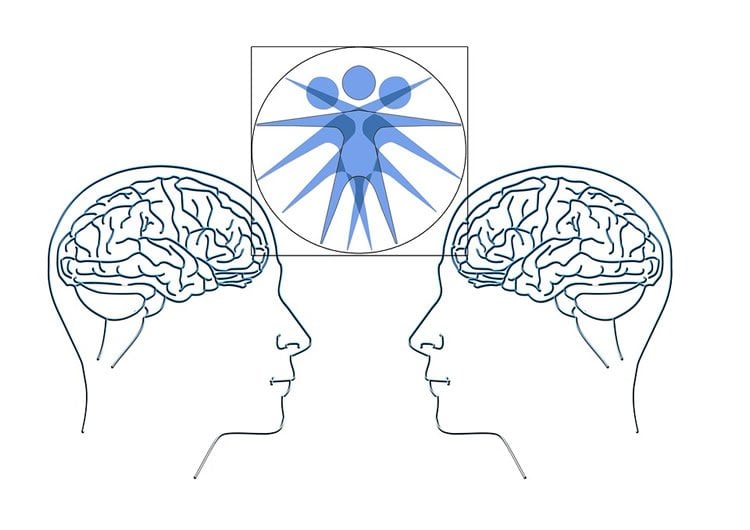According to newly published research, a specialized psychotherapy has been linked to changes in activation patterns in certain areas of the brain in patients with borderline personality disorder (BPD), suggesting its impact may go deeper than symptom change.
A team of researchers including Mark F. Lenzenweger, distinguished professor of psychology at Binghamton University, recruited ten women with BPD from the New York Presbyterian Hospital/Weill Cornell Medical College and conducted this neuroimaging study using functional magnetic resonance imaging (fMRI) methods. These patients were treated for one year with transference-focused psychotherapy (TFP), an evidence-based treatment proven to reduce symptoms across multiple cognitive-emotional domains in BPD. Treatment with TFP was associated with relative activation increases in cognitive control areas and relative decreases in areas associated with emotional reactivity. According to researchers, these findings suggest that TFP may potentially facilitate symptom improvement in BPD.
“These findings represent the genuine frontier of clinical science in understanding the effects of psychotherapy,” said Lenzenweger. “Think of it — talk therapy that impacts neural or brain functioning.”

“These results advance our currently limited understanding of neural mechanisms associated with psychodynamically oriented psychotherapy,” wrote the researchers. “Activation in [certain parts of the brain] was associated with improvements in behavioral constraint, emotional regulation and/or aggression in patients with BPD.”
Funding: This research was supported, in part, by The Dworman Foundation and the Department of Psychiatry at Weill Cornell Medical College.
Source: Mark Lenzenweger – Binghamton University
Image Credit: The image is in the public domain
Original Research: Abstract for “Frontolimbic neural circuit changes in emotional processing and inhibitory control associated with clinical improvement following transference-focused psychotherapy in borderline personality disorder” by David L. Perez MD, David R. Vago PhD, Hong Pan PhD, James Root PhD, Oliver Tuescher MD PhD, Benjamin H. Fuchs BA, Lorene Leung BA, Jane Epstein MD, Nicole M. Cain PhD, John F. Clarkin PhD, Mark F. Lenzenweger PhD, Otto F. Kernberg MD, Kenneth N. Levy PhD, David A. Silbersweig MD, and Emily Stern MD in Psychiatry and Clinical Neurosciences. Published online October 8 2015 doi:10.1111/pcn.12357
Abstract
Frontolimbic neural circuit changes in emotional processing and inhibitory control associated with clinical improvement following transference-focused psychotherapy in borderline personality disorder
Aims
Borderline personality disorder (BPD) is characterized by self-regulation deficits, including impulsivity and affective lability. Transference-focused psychotherapy (TFP) is an evidence-based treatment proven to reduce symptoms across multiple cognitive–emotional domains in BPD. This pilot study aimed to investigate neural activation associated with, and predictive of, clinical improvement in emotional and behavioral regulation in BPD following TFP.
Methods
BPD subjects (n = 10) were scanned pre- and post-TFP treatment using a within-subjects design. A disorder-specific emotional–linguistic go/no-go functional magnetic resonance imaging paradigm was used to probe the interaction between negative emotional processing and inhibitory control.
Results
Analyses demonstrated significant treatment-related effects with relative increased dorsal prefrontal (dorsal anterior cingulate, dorsolateral prefrontal, and frontopolar cortices) activation, and relative decreased ventrolateral prefrontal cortex and hippocampal activation following treatment. Clinical improvement in constraint correlated positively with relative increased left dorsal anterior cingulate cortex activation. Clinical improvement in affective lability correlated positively with left posterior-medial orbitofrontal cortex/ventral striatum activation, and negatively with right amygdala/parahippocampal activation. Post-treatment improvements in constraint were predicted by pre-treatment right dorsal anterior cingulate cortex hypoactivation, and pre-treatment left posterior-medial orbitofrontal cortex/ventral striatum hypoactivation predicted improvements in affective lability.
Conclusions
These preliminary findings demonstrate potential TFP-associated alterations in frontolimbic circuitry and begin to identify neural mechanisms associated with a psychodynamically oriented psychotherapy.
“Frontolimbic neural circuit changes in emotional processing and inhibitory control associated with clinical improvement following transference-focused psychotherapy in borderline personality disorder” by David L. Perez MD, David R. Vago PhD, Hong Pan PhD, James Root PhD, Oliver Tuescher MD PhD, Benjamin H. Fuchs BA, Lorene Leung BA, Jane Epstein MD, Nicole M. Cain PhD, John F. Clarkin PhD, Mark F. Lenzenweger PhD, Otto F. Kernberg MD, Kenneth N. Levy PhD, David A. Silbersweig MD, and Emily Stern MD in Psychiatry and Clinical Neurosciences. Published online October 8 2015 doi:10.1111/pcn.12357






